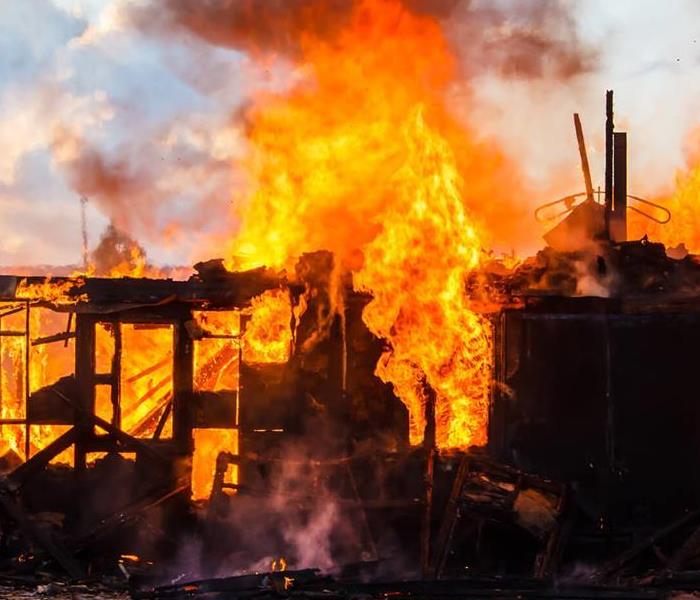Top 5 Common Causes of Fire Damage
9/6/2022 (Permalink)
Cooking
The NFPA reports that from 2015-2019, cooking caused 49 percent of reported home fires, 20 percent of reported home fire deaths, and 42 percent of home fire injuries. It is the most common cause of residential fires. Major cooking holidays such as Thanksgiving and Christmas are the riskiest time for cooking fires.
Approximately 44 percent of house fires begin in the kitchen or cooking area and from 2013-2017, almost half of all home structure fires were caused by cooking. These fires are commonly due to things being left cooking unattended as well as open flames and spills. If someone is not in the kitchen to extinguish the fire it can quickly get out of hand.
Tips
- Maintain a fire extinguisher in the kitchen (that is rated for kitchens)
- Don’t use the stove if you are tired or have consumed any alcohol
- Remain in the kitchen while cooking
- Utilize a timer to remind you that things are cooking
- Keep anything that could catch fire (e.g. paper towels, oven mitts, wooden utensils) away from the stove.
Heating
Per the NFPA, from 2014-2018, local fire departments responded to an average of about 48,530 fires annually that involved heating equipment. This is equal to about 14% of all reported home fires during this time period and resulted in approximately 500 civilian deaths and 1,350 civilian injuries each year.
The most common heating cause of fires is space heaters. Although fireplaces and furnaces can pose a risk, space heaters can cause a fire simply by being left too close to other things that can catch fire.
While furnaces can cause fires in a home, space heaters and fireplaces are more common sources of heating equipment fires.
Tips
- Always keep anything that can burn a minimum of 3 feet from heating equipment
- Each year you should have your heating equipment, such as your chimneys, cleaned and inspected by a professional
Electrical
Another common cause of fires in the home is electrical, namely faulty wiring. You may be able to tell that your house has faulty wiring if you see blinking lights, lights that dim when you turn on appliances, or sparks coming from an electrical outlet.
Tip
- Always have all electrical work done by a professional
Smoking
Another common cause of fire damage is lit cigarettes or lighters. Sadly, one out of every four victims who die from a smoking-material fire is not the smoker. Merely dropping a lit cigarette can cause a blaze that spreads throughout the entire house. This often occurs when someone drops a cigarette after falling asleep. The best way to combat fire damage from smoking is by always smoking outside of the home.
Tips
- Only smoke fire-safe cigarettes
- Always smoke outside
- Always keep smoking materials (e.g. cigarettes, lighters, etc.) out of the reach of children
- Never leave e-cigarettes to charge unattended
- Never smoke around medical oxygen, which is easily combustible
- Candles
According to the NFPA, each year (from 2015-2019) U.S. fire departments responded to approximately 7,400 home structure fires that were started by candles. These fires resulted in an average of 90 fatalities and 670 injuries per year. An average of 20 home candle fires are reported daily.
Tips
- Never leave candles burning attended
- Always trim the candle wick after each use
- Keep candles at least a foot from anything that can burn
- Always blow out candles before going to sleep or leaving the room

 24/7 Emergency Service
24/7 Emergency Service
